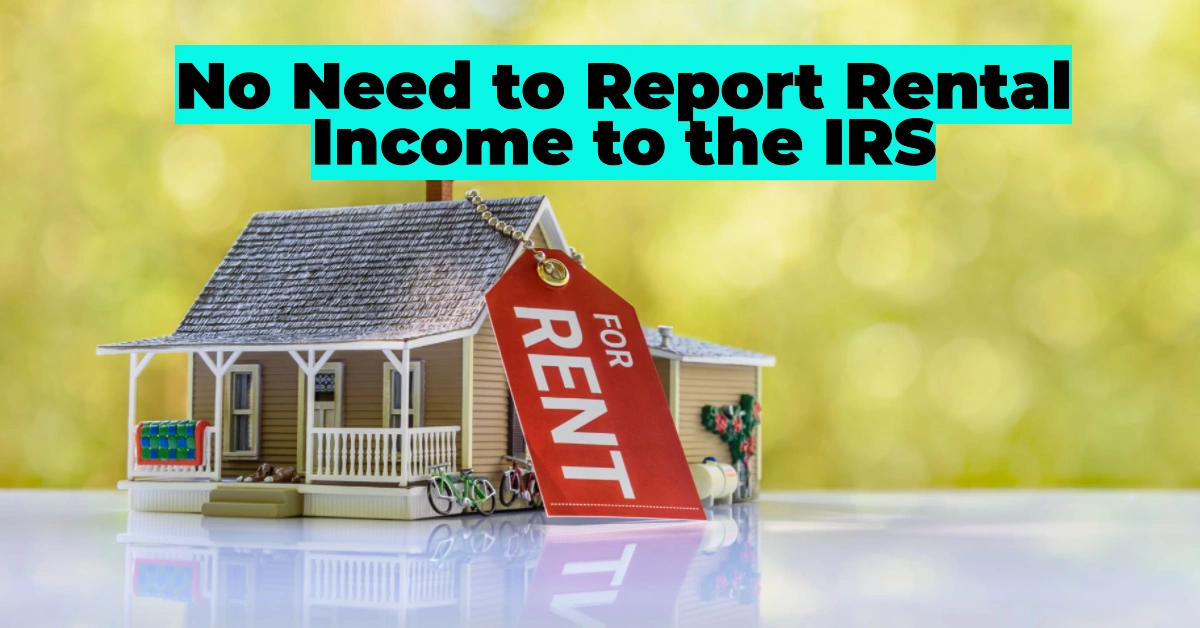Owning a home in the United States comes with various tax responsibilities, but not all homeowners are required to report rental income to the IRS. While most property owners must declare earnings from rental properties, there are specific exemptions that allow certain homeowners to bypass this obligation.
Table of Contents
By understanding the tax rules, homeowners can determine whether they need to report rental income and explore potential deductions to reduce their overall tax burden.
Who is Exempt from Declaring Rental Income to the IRS?
While the vast majority of homeowners renting out their property must report earnings to the IRS, there is a key exception. If a homeowner rents out their home for less than 15 days per year, they are not required to report this rental income. This tax exemption falls under the “14-Day Rule,” making it a great option for those who occasionally rent their homes for short-term stays.
However, if the rental period exceeds 14 days within a calendar year, the homeowner must report the income as taxable earnings. In such cases, the IRS requires full disclosure of rental profits on the homeowner’s annual tax return.
NYC Offers Up to $100K in Down Payment Assistance: Homeownership for First-Time Buyers
Will Mortgage Rates Drop in February 2025? Key Predictions and Market Insights Without a Fed Meeting
Lesser-Known Tax Breaks for Homeowners in the United States: Maximizing Your Tax Return
$51 Million in New York Homeowner Assistance – Just One Requirement to Qualify!
Top 10 Housing Market Hot Spots to Watch in 2025: Where Homeownership Dreams Come True
Tax Deductions Available for Homeowners Renting Their Property
For those who exceed the 14-day exemption and must report rental income, there are several deductions available that can significantly reduce taxable income. These include:
- Mortgage Interest: A portion of your mortgage interest can be deducted.
- Property Taxes: Real estate taxes paid on the rental property can be claimed.
- Maintenance & Repairs: Any expenses related to keeping the rental home in good condition.
- Insurance Premiums: Homeowner’s insurance related to rental use.
- Depreciation: If applicable, property owners can deduct depreciation over time.
To claim these deductions, homeowners must complete Form 1040, along with relevant supporting documents. Keeping proper invoices and records is crucial to ensuring all deductions are accepted by the IRS.
Deadline for Filing IRS Tax Returns in 2025
Homeowners who must report rental income should be aware of the IRS tax return deadline. The final date to submit the 2025 IRS Tax Return is April 15, 2025. Filing early not only ensures compliance but also allows homeowners to receive potential tax refunds sooner.
Final Thoughts: Act Early to Maximize Benefits
If you qualify for the 14-Day Rule exemption, you can enjoy rental income tax-free. However, if you exceed the 15-day limit, understanding deductions and tax obligations can help minimize your tax burden. Filing early ensures you meet IRS deadlines while optimizing any refunds due.
By staying informed about IRS rules and available deductions, homeowners can navigate rental income taxation effectively and legally.
